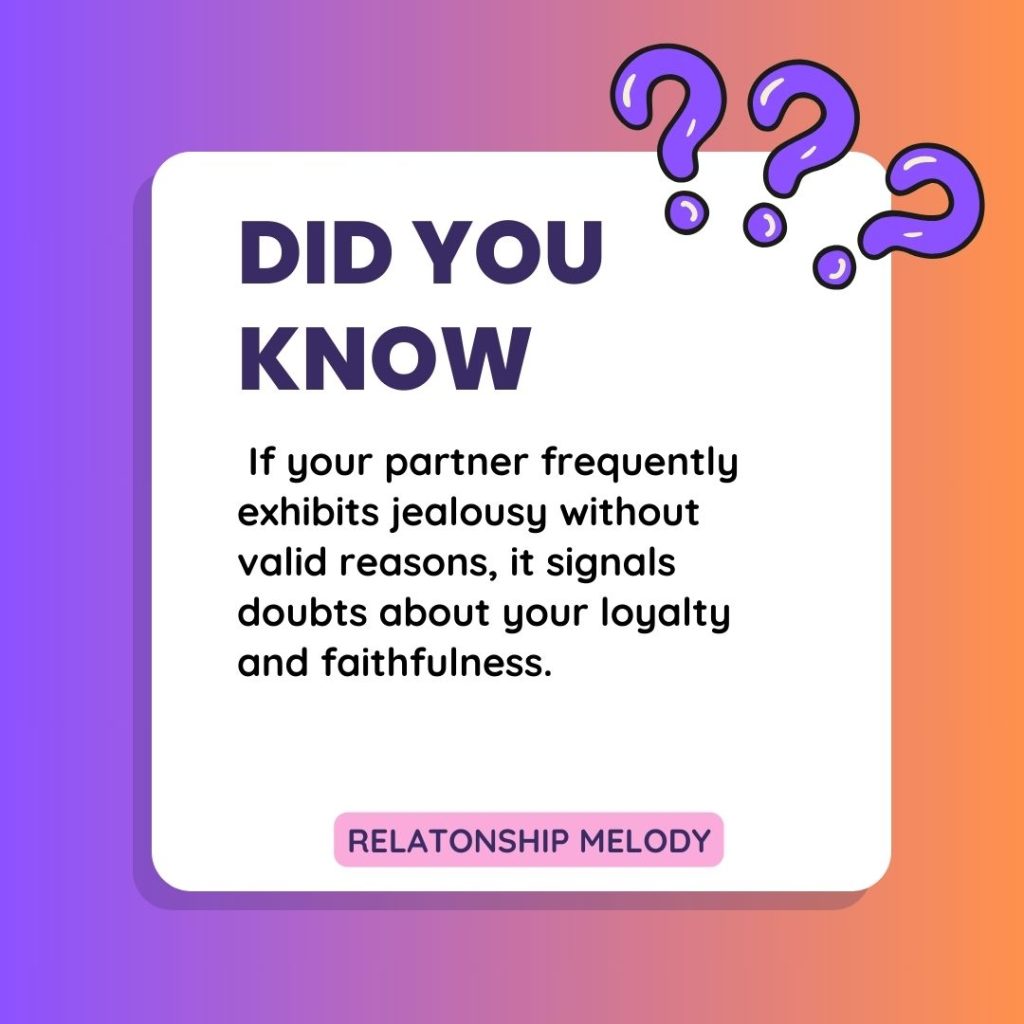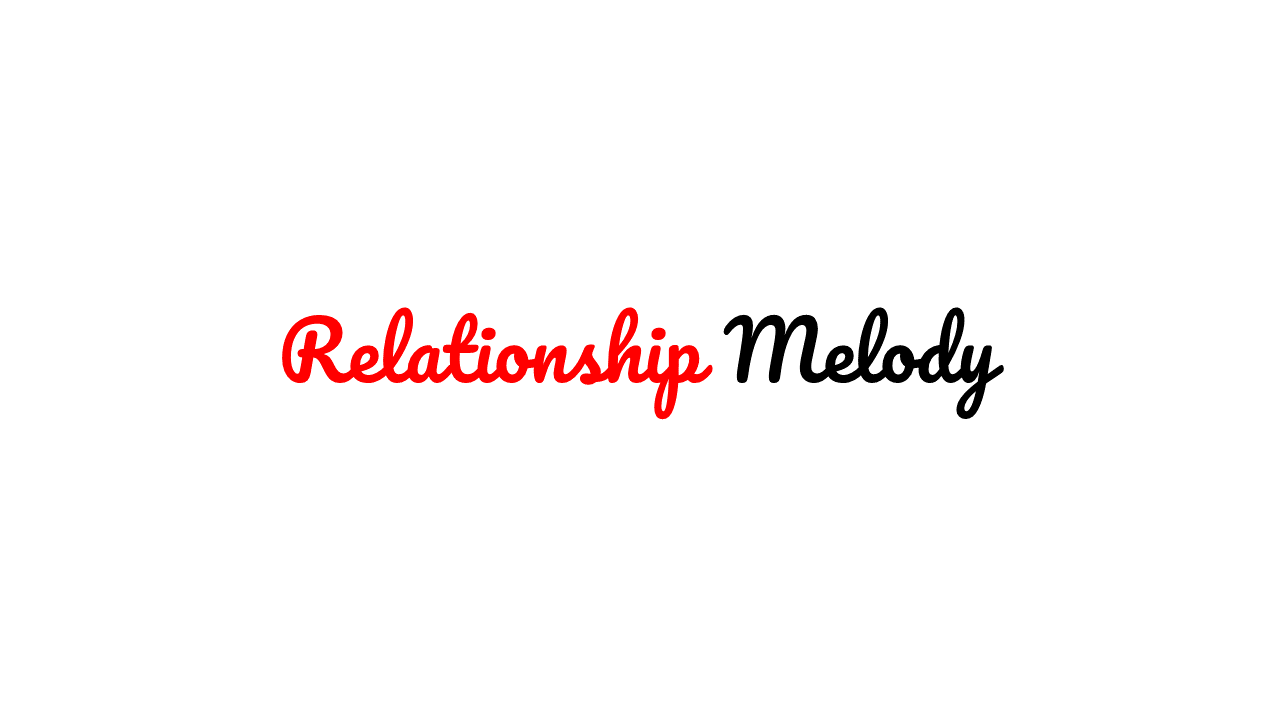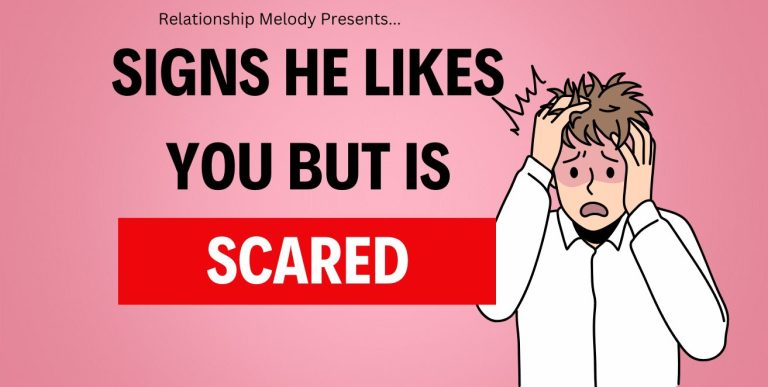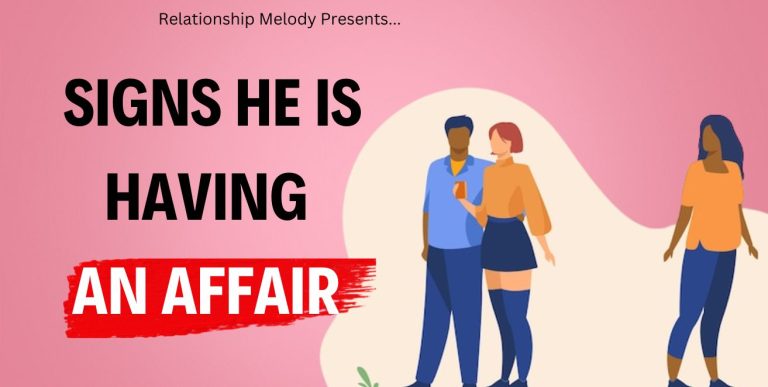25 Signs He Is Still Doubting Me
Building trust and maintaining a strong relationship requires open communication, mutual respect, and unwavering faith in one another. Unfortunately, doubt can creep into even the most solid partnerships, leaving one person feeling uncertain about their worth.
If you find yourself questioning whether your partner truly believes in you, it’s crucial to address these concerns head-on.
In this blog post, we’ll explore 25 signs that indicate your partner may still be doubting your abilities, intentions, or commitment. By recognizing these red flags, you can initiate a constructive conversation and work towards rebuilding trust.
25 Signs He Is Still Doubting Me
Here are 25 signs to know.
#1 Lack of Supportive Words:
When your partner fails to offer words of encouragement or express doubts about your abilities, it can be disheartening. A lack of supportive language indicates a potential lack of belief in your capabilities, leading to feelings of doubt and insecurity.
#2 Questioning Your Decisions:
Constantly second-guessing your choices or frequently challenging your judgment is a clear sign of mistrust. It demonstrates that your partner is uncertain about your decision-making abilities and may harbour doubts about your competence or intentions.
#3 Dismissing Your Accomplishments:
Your achievements deserve acknowledgement and celebration. However, if your partner consistently downplays or disregards your accomplishments, it suggests a lack of belief in your capabilities or a dismissive attitude towards your successes.
#4 Micro-Managing Your Actions:
Experiencing excessive monitoring or controlling behaviour from your partner can be detrimental to your sense of autonomy and confidence. It indicates a lack of trust in your ability to make sound decisions and can make you doubt your judgment.
#5 Ignoring Your Boundaries:
Respecting each other’s boundaries is crucial in a healthy relationship. If your partner consistently crosses your boundaries despite your clear communication, it shows a lack of respect, trust, and consideration for your feelings, leading to doubts about their commitment to your well-being.
#6 Hesitation to Introduce You:
Introducing your partner to friends and family is a significant step in a committed relationship. If your partner is reluctant to include you in their social circle or avoids introducing you to important people in their life, it may suggest doubts about the long-term potential of the relationship or uncertainty about your compatibility.
#7 Withholding Information:
Open and honest communication is the foundation of trust. If your partner keeps important details from you or is secretive about their own life, it creates a sense of mistrust and raises doubts about their willingness to be vulnerable and transparent with you.
#8 Frequent Accusations:
Constantly accusing you of wrongdoing, without any evidence or valid reasons, indicates underlying doubts and suspicion. It demonstrates a lack of trust in your integrity and can lead to feelings of frustration and insecurity.
#9 Undermining Your Independence:
A healthy relationship allows for individual growth and independence. If your partner consistently tries to limit your freedom or belittle your achievements, it’s a clear sign of doubt and a lack of trust in your capabilities.
#10 Disinterest in Your Goals:
A supportive partner takes an interest in your personal and professional aspirations. If your partner displays a lack of enthusiasm or support for your goals, it may indicate doubts about your potential or a lack of investment in your dreams.
#11 Excessive Jealousy:
Unwarranted jealousy is often rooted in insecurity and a lack of trust. If your partner frequently exhibits jealousy without valid reasons, it signals doubts about your loyalty and faithfulness, leading to strained dynamics within the relationship.

#12 Avoiding Emotional Vulnerability:
Emotional vulnerability is crucial for deepening intimacy and connection. If your partner consistently avoids opening up emotionally or expressing their feelings, it suggests a reluctance to fully invest in the relationship and can leave you doubting the depth of their emotional commitment.
#13 Lack of Future Planning:
Healthy relationships involve envisioning a future together. If your partner shows no interest in making plans or avoids discussions about long-term goals, it may indicate doubts about the sustainability of the relationship or a lack of commitment.
#14 Reluctance to Apologize:
An essential aspect of trust and respect is the ability to acknowledge and apologize for mistakes. If your partner has difficulty admitting fault or apologizing, it reveals a lack of accountability and can make you question their sincerity and willingness to address relationship issues.
15 Neglecting Your Emotional Needs:
A caring partner recognizes and addresses your emotional needs. However, if your partner consistently ignores or dismisses your emotional well-being, it indicates doubts about the importance of your feelings and can lead to doubts about their commitment to your happiness.
#16 Excessive Monitoring of Communication:
Trust includes giving each other space and privacy. If your partner constantly checks your phone, and social media accounts, or monitors your communication, it demonstrates a lack of trust and suggests doubts about your faithfulness and honesty.
#17 Criticizing Your Choices:
Constructive feedback is valuable, but constant criticism of your choices erodes self-confidence and trust. If your partner consistently disapproves or undermines your decisions, it reflects doubts in your judgment and can leave you feeling uncertain about your capabilities.
#18 Lack of Physical Intimacy:
Physical intimacy is an important aspect of a romantic relationship. A decline in physical affection and intimacy may indicate doubts about the emotional connection, compatibility, or attraction, raising concerns about the overall strength of the relationship.
#19 Non-Verbal Signs of Disbelief:
Non-verbal cues can reveal a lot about someone’s true feelings. Rolling eyes, smirking, or dismissive body language are subtle indicators of underlying doubt and scepticism, which can significantly impact your self-esteem and trust in the relationship.
#20 Disregarding Your Opinions:
A healthy relationship values and respects each other’s opinions. If your partner consistently dismisses or devalues your thoughts and viewpoints, it demonstrates a lack of respect and trust in your judgment, making you question your worth within the partnership.
#21 Frequent Comparisons:
Comparing you to others or ex-partners regularly suggests dissatisfaction and doubts about your suitability. Constantly feeling compared can leave you feeling insecure and uncertain about whether you truly measure up to your partner’s expectations.
#22 Lack of Consistency:
Trust is built on consistency and reliability. If your partner’s behaviour is unpredictable, inconsistent, or constantly changing expectations, it can create doubt and uncertainty about their intentions, causing strain in the relationship.
#23 Seeking Constant Reassurance:
A partner who constantly seeks reassurance about your commitment, love, or loyalty may still have lingering doubts. Their need for continuous validation suggests a lack of trust and can leave you feeling exhausted and uncertain about their faith in the relationship.
#24 Breaking Promises:
Repeatedly breaking promises or failing to follow through on commitments erodes trust and faith in the relationship. If your partner consistently fails to keep their word, it indicates doubts about their reliability and sincerity, leading to feelings of disappointment and doubt.
#25 Lack of Emotional Support:
Emotional support is crucial in a healthy relationship. If your partner is consistently absent or indifferent during times of emotional distress, it reveals doubts about their willingness to provide comfort and care, leaving you questioning their commitment and supportiveness.
Read more: Signs He Is Slowly Starting To Like You.
Conclusion:
Recognizing the signs of doubt in a relationship is crucial for addressing underlying issues and rebuilding trust. It’s essential to initiate open and honest communication with your partner, expressing your concerns and seeking clarity.
Remember, doubts are not insurmountable obstacles, and with sincere efforts, both partners can work together to strengthen their bond.
Trust is a foundation that requires continuous nurturing and reinforcement, and by addressing doubts early on, you pave the way for a healthier and more fulfilling relationship.
Liked Our Article?
Our Patreon link: https://www.patreon.com/RelationshipMelody

Welcome to Relationship Melody! Our website is dedicated to all things on relationships, dating, and love! We are passionate about helping you navigate the ups and downs of love, and our goal is to provide you with valuable insights and information that will make your journey toward a fulfilling relationship smoother and more enjoyable.







